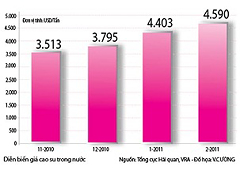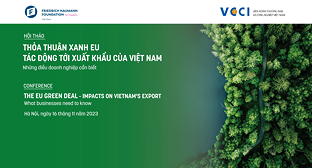Customs seeks to keep unsafe, cheap shrimp out of U.S.
25/11/2008 12:00

BATON ROUGE — Federal law-enforcement agents have begun new efforts to prevent Chinese shrimp producers from evading trade and food-safety laws.
Louisiana’s shrimp industry, along with those in other Southern states, has waged a long-fought battle to curb the illegal dumping of cheap foreign shrimp on the U.S. market. The shrimp is often sold below production costs.
Many shrimpers, unable to compete against the low import prices, have been forced out of business. In the last few years alone, thousands left the business. In Louisiana alone, nearly 7,500 fewer shrimping licenses were sold in Louisiana from 2002 to 2005.
Fishermen and dealers have increased prices and embraced alternative business methods that include selling frozen products or selling their catches at farmers’ markets, but challenges continue.
In response, the U.S. Department of Commerce has issued anti-dumping orders, and the U.S. Food and Drug Administration has subjected Chinese shrimp to a food-safety Import Alert. Yet enforcement on both fronts has proven difficult.
By improperly labeling products, Chinese shrimp have entered the U.S. with little or no scrutiny, and payments meant for domestic producers are going unpaid.
The U.S. Customs Bureau is starting to take a more active role, checking and testing shrimp imports at ports around the nation. Officials say the due diligence will be expanded to other U.S. ports in coming months.
At the port of Los Angeles in October, customs officials stopped more than 30 containers of Chinese shrimp illegally labeled as a product of Indonesia. The FDA refused to allow the shrimp entry because they were believed them to be contaminated with banned veterinary drugs, such as nitrofurans.
The Southern Shrimp Alliance, an advocacy group representing shrimping interest in eight states including Louisiana, has praise for the action.
Customs’ “efforts to address unlawful transshipment schemes over the last three years have been exemplary,” said John Williams, the alliance’s executive director.
It’s estimated that $60 million worth of Chinese shrimp entered the U.S. market in 2005 falsely labeled as a product of Indonesia. Additionally, U.S. import data suggests that the shipment of Chinese shrimp through Malaysia continue unabated.
“These schemes are only possible because our laws permit almost anyone to export shrimp products to the United States,” Williams said. “U.S. laws regulating the importation of shrimp, America’s most popular seafood, should mirror those in place for imports of meat, poultry, and eggs.”
Louisiana’s shrimp industry, along with those in other Southern states, has waged a long-fought battle to curb the illegal dumping of cheap foreign shrimp on the U.S. market. The shrimp is often sold below production costs.
Many shrimpers, unable to compete against the low import prices, have been forced out of business. In the last few years alone, thousands left the business. In Louisiana alone, nearly 7,500 fewer shrimping licenses were sold in Louisiana from 2002 to 2005.
Fishermen and dealers have increased prices and embraced alternative business methods that include selling frozen products or selling their catches at farmers’ markets, but challenges continue.
In response, the U.S. Department of Commerce has issued anti-dumping orders, and the U.S. Food and Drug Administration has subjected Chinese shrimp to a food-safety Import Alert. Yet enforcement on both fronts has proven difficult.
By improperly labeling products, Chinese shrimp have entered the U.S. with little or no scrutiny, and payments meant for domestic producers are going unpaid.
The U.S. Customs Bureau is starting to take a more active role, checking and testing shrimp imports at ports around the nation. Officials say the due diligence will be expanded to other U.S. ports in coming months.
At the port of Los Angeles in October, customs officials stopped more than 30 containers of Chinese shrimp illegally labeled as a product of Indonesia. The FDA refused to allow the shrimp entry because they were believed them to be contaminated with banned veterinary drugs, such as nitrofurans.
The Southern Shrimp Alliance, an advocacy group representing shrimping interest in eight states including Louisiana, has praise for the action.
Customs’ “efforts to address unlawful transshipment schemes over the last three years have been exemplary,” said John Williams, the alliance’s executive director.
It’s estimated that $60 million worth of Chinese shrimp entered the U.S. market in 2005 falsely labeled as a product of Indonesia. Additionally, U.S. import data suggests that the shipment of Chinese shrimp through Malaysia continue unabated.
“These schemes are only possible because our laws permit almost anyone to export shrimp products to the United States,” Williams said. “U.S. laws regulating the importation of shrimp, America’s most popular seafood, should mirror those in place for imports of meat, poultry, and eggs.”
Jeremy Alford
Capitol Correspondent
Jeremy Alford can be reached at jeremy@jeremyalford.com.
Published: Friday, November 21, 2008 at 2:00 p.m.
Source: www.houmatoday.com
Capitol Correspondent
Jeremy Alford can be reached at jeremy@jeremyalford.com.
Published: Friday, November 21, 2008 at 2:00 p.m.
Source: www.houmatoday.com
Các tin khác
- Businesses capitalize on recovery momentum to explore market expansion (17/04/2024)
- Canada is second largest consumer of Vietnamese pangasius in CPTPP bloc (17/04/2024)
- India’s tariff removal on several US products benefiting farmers: Katherine Tai (17/04/2024)
- Thailand Contemplates Protective Tariffs on Chinese Imports Amidst Surging Trade Deficit (17/04/2024)
- Vietnam becomes largest banana exporter to Chinese market (17/04/2024)
 Home
Home
 About Us
About Us




















